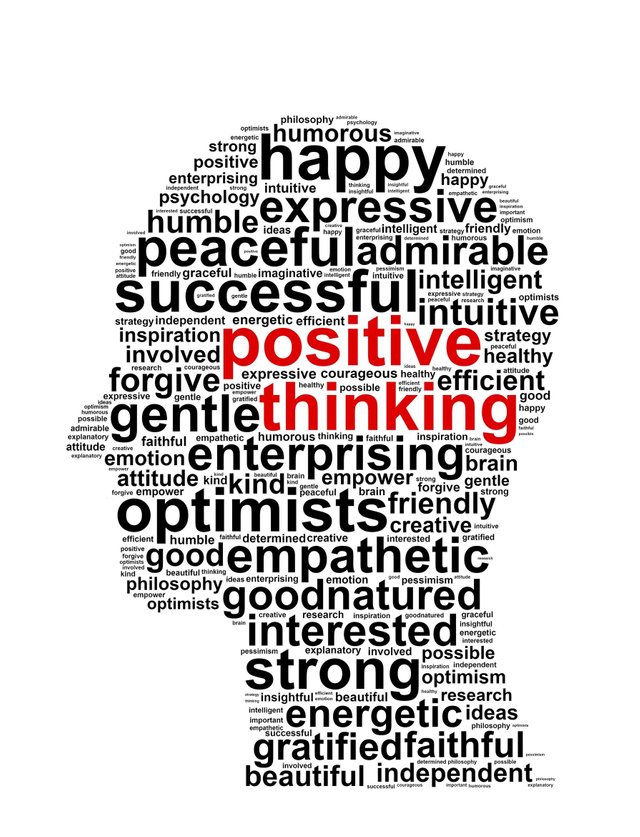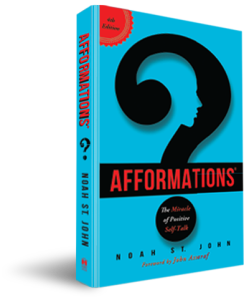The Advantages of an Optimistic Bias, and Afformations

The Engine of Capitalism
I recently listened to another great chapter of Daniel Kahneman’s Thinking, Fast and Slow, chapter 24, entitled “The Engine of Capitalism”. He suggests that if you were allowed only one wish for your child, an optimistic bias would be well worth considering.
Some Advantages of Being Optimistic
Kahneman lists several benefits experienced by those with a moderate --but not excessive-- optimistic bias. In comparison to the average person, more optimistic individuals are likely to be:
- Popular
- Resilient
- Less susceptible to Depression
- Healthier
Disproportionate Roles
Optimistic individuals are more likely to be influential as:
- Inventors
- Entrepreneurs
- Scientists
- Political and Military Leaders
I know this to be true in scientific research
It takes a great deal of persistence to succeed as a scientist. Not every idea, nor even every funded project, succeeds. In many cases researchers do not find out whether or not an idea will produce good results until they’ve already spent a great deal of time and effort on it. I’ve been through this many times in my 18+ years of professional life. Kahneman has had much more experience, some of which he shares with us via his book.
Although Kahneman says that optimistic bias is largely genetically determined, we all have some capacity to choose to think more positive thoughts and avoid dwelling on the negative.

Going beyond half-full vs. half-empty, to “How can I fill it up?”
Afformations
Before I got this far into Thinking, Fast and Slow, I came across this interview with Noah St. John.
His idea of “Afformations” is about posing positive questions to ones self, to get the brain working –even and especially subconsciously-- to solve our problems. Thinking pessimistic or otherwise negative thoughts about upcoming challenges can be a form of self-sabotage. Instead, posing positive challenges to our brains primes us for success.
Although this is about the longstanding idea of positive thinking, it differs from the typical “positive thinking” approach. Noah St. John argues that for many people it’s particularly important not to simply make positive statements –typical “affirmations”— if they do not think those statements are realistic. At least for many people, it works better to pose questions, such as:
“How can I do X?”
Even if you don’t buy that, avoiding negative self-talk and self-sabotage is probably a good idea
In other words, don’t ask yourself “Why can’t I ever succeed at X”? or “Why am I so stupid?”, or “Why don’t I have any friends?”. Instead just ask yourself “How can I succeed?” or “How can I be smarter about X?”, or “How can I make friends?”.
Embedded Presupposition Factor
It’s more important to ask –hence “frame”—the questions in a positive way than it is to consciously answer those questions. This is because our brains do in fact search subconsciously to answers to the questions that we pose to ourselves. As Jamal-Kim Hester explains in this video, “We are own own Google”.
Here’s Noah St. John’s website: http://noahstjohn.com

Another Angle
The above very much agrees with one of Josh Waitzkin's recommendations, from his book The Art of Learning. Waitzkin suggests ending ones work day working on something challenging and meaningful --before finishing it. He suggests then taking a break from working on that, to have dinner, relax, etc. During that time, the brain will continue subconsciously to work on the problem. Then, when one returns to work on that problem, one can be more productive.
S. Lan Smith
Hamburg, Germany
October 2, 2016
Thanks to everyone who produced and made freely available the images used in this post.
Sweet post, am a huge believer in positive afformations, for sure!
Thanks. Yes, I'm finding that it works for me as well.